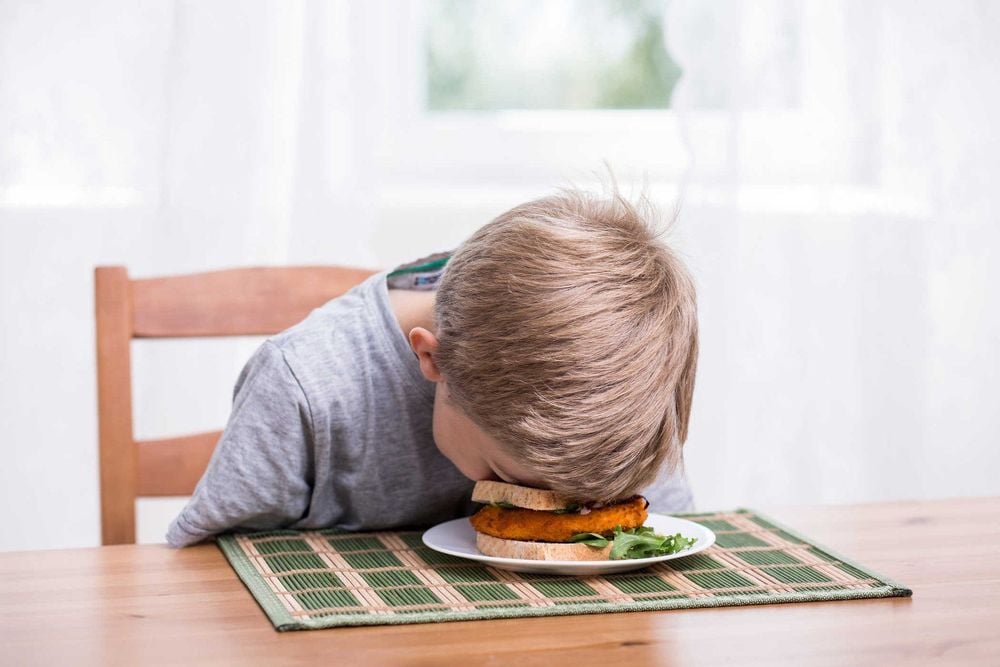This is an automatically translated article.
"Forcing children to eat a lot is not good" is the concern of parents. However, this practice causes some consequences for children, such as phobias when it comes to meals, being overweight or obese or even anorexia. Therefore, instead of forcing children to eat, parents should prepare a varied, nutritious menu and let children eat what they want.
1. Is it good to force children to eat a lot?
The fact that parents force children to eat more often stems from the worry that the child will not get enough nutrients if he eats less. If a child is underweight, parents are more likely to want to encourage eating and may end up using pressure without realizing that this will backfire.
Parental pressure to eat can also stem from a desire to avoid wasting prepared food. However, sometimes the portions we prepare for older children are unrealistic. In this case, it is not forcing the child to eat a lot, and the child to eat less, but the serving size is too large.
Therefore, "forcing children to eat a lot is good" is definitely "not good". This will have many consequences for the health of the child.

Giải đáp ép trẻ ăn nhiều có tốt không?
2. Consequences of forcing children to eat a lot
Pressure eating is associated with a number of negative consequences. They are:
Children are less likely to like food This may be due to a negative experience of being forced to eat. Children quickly make associations between foods and the unpleasant experiences that come with them. If a child is pressured to eat more than they want, the negative and internal feelings of being too full may be related to a particular food, leading to a decreased preference for that food.
Less willingness to eat food Similarly, willingness to try a particular food may decrease if the initial experience is negative. For example, a child's first exposure to cabbage may be rejected, either by a response based on the child's natural neurophobia or by starvation. If this refusal is met with constant verbal coaxing and the parent tries to put the cabbage in their child's mouth, the connection the child can make with the cabbage will not be a positive outcome.
Therefore, forcing children to eat is definitely not good, this can also make children phobias every time it comes to a meal or tries a new food.
Forcing a child to eat too much leads to overweight Forcing a child to eat can impair a child's ability to control proper appetite. Children need opportunities to learn to recognize their body's hunger and satiety signals. Through experiencing hunger, children will learn how their body signals that they have more energy and vice versa, when they have consumed enough energy, it is appropriate to stop eating.
Although hunger and fullness are internal feelings, research has shown that they can be influenced by a number of factors. Over time, feelings of fullness lose their meaning, as they no longer signal that meals should stop. Instead, children learn to keep eating, even after they start to feel full, stopping only when the plate is empty or the parent says they can stop.
This means that children listen less to their bodies and therefore food intake will be determined by factors other than what the body requires.

Ép trẻ ăn nhiều có tốt không là thắc mắc chung của nhiều bậc phụ huynh
3. What should parents do?
It is important for parents to understand that children will eat if they are hungry. This way, you won't feel the need to force your child to eat. What parents should do:
Check feeding times: How long has it been since your child last had a snack or a complementary drink, such as milk? Is your child really hungry?... So use a diary to track the quantity and timing of snacks, drinks, meals and naps to see if your child's habits are contributing. part of their eating behaviour. Put yourself in the child's shoes: Imagine what it would be like if you weren't hungry and were coaxed or even forced to eat. Putting yourself in the child's shoes will help you realize that this behavior can have the opposite effect. Eating must be a pleasurable experience for children to meet biological needs. Try to gain the satisfaction of knowing that your child has eaten as much as he or she wanted instead of eating the amount of food you force. Our bodies are very good at knowing when we are hungry and full. However, repeatedly asking children to eat when they no longer want can circumvent this. Eating when hungry and stopping when full is behavior that we want to protect, not destroy, so try to allow your child to tell you when they are hungry and full. Check portion sizes: As a guide, a small portion of each food should almost fit in the palm of your child's hand. For example, if feeding your baby lasagne, serve one palm-sized portion of lasagne and 2-3 palm-sized portions of vegetables. For dessert, try a palm-sized portion of fruit and natural yogurt. Remember that all children's tastes are different, but following the 'rule of the palm' for each food will help you avoid over-sized single servings. “Forcing children to eat is not good” is the concern of parents. However, this practice causes some consequences for children, such as phobias when it comes to meals, being overweight or obese or even anorexia. Therefore, instead of forcing children to eat, parents should prepare a varied and nutritious menu and let children eat what they want.
Besides changing the diet and living habits, the baby needs to add the necessary micronutrients: Zinc, selenium, chromium, Vitamins B1 and B6, Ginger, acerola fruit extract (vitamin C), ... to improve taste, eat well, reach the correct height and weight, and exceed the standard, have a good immune system, strengthen resistance to less sickness and less digestive problems.
The improvement of symptoms can take place for a long time, so it is recommended that parents be calm and persistent when supplementing with nutrients for children, even through eating or functional foods. In particular, the use of functional foods should choose those of natural origin that are easily absorbed, do not allow simultaneous use of many types or continuously change the types of functional foods.
For more nutritional knowledge and child care for each age, parents should regularly visit the website vimec.com and make an appointment with the leading doctors, pediatric and nutrition experts of the National General Hospital. Vinmec when needing advice on children's health.













